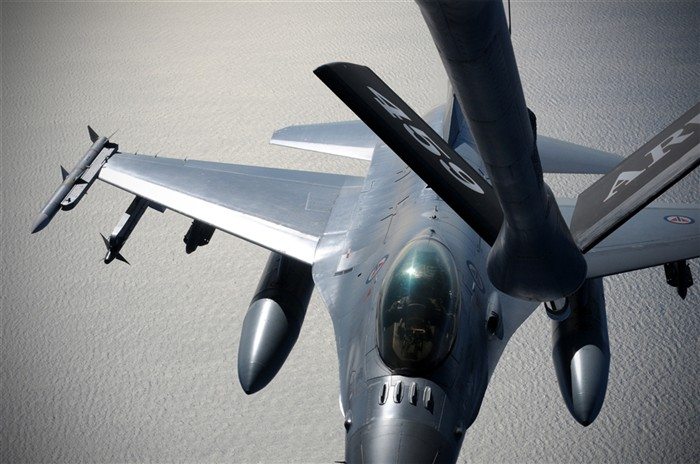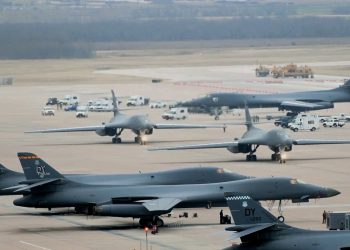European defence ministers facing shrinking budgets agreed Thursday to join forces to get more air-to-air refueling planes, deploy extra field hospitals and exploit “green” energy.
The projects are part of the European Union’s efforts to pool and share military resources as the debt crisis and a US strategic pivot towards Asia forces Europe’s armed forces to band together.
The ministers, who met in Brussels, emphasized in a statement “the urgent political necessity to retain and develop the military capabilities for sustaining and enhancing” their common security policy.
They signed a political declaration to pursue ways to purchase or share airborne tankers after being forced to rely heavily on US tankers to keep their fighter jets aloft during NATO’s seven-month operation in Libya last year.
The ministers “consider that air-to-air refueling capabilities should be developed as a matter of priority,” said Claude-France Arnould, chief executive of the European Defence Agency.
They hope to increase their air-to-air refueling capabilities by 2020 through joint acquisitions or by sharing existing aircraft, with Britain and Italy already well equipped in that field.
The United States provided 80 percent of the aerial tankers during the Libyan campaign, an operation that required European combat aircraft to refuel once or twice per sortie.
In another money-saving effort, 12 EU states led by Italy signed up to a project to develop multinational field hospitals that can be deployed to combat or disaster zones, with emergency room modules, X-ray machines and surgery units.
The defence ministers also explored a “Go Green” initiative to seize on renewable energy, part of efforts to “generate more defence for the same money,” said Arnold, whose agency is tasked with exploring pooling and sharing options.
With EU armed forces collectively managing 200 million square metres of building, the idea would be to install solar panels on roofs to save money on energy. Six EU nations agreed to start pilot programmes.
“Through this they have an opportunity to save energy and develop new alternative energy sources for faster, cleaner, more sustainable and cheaper ways to meet their growing energy needs,” Arnould said.









